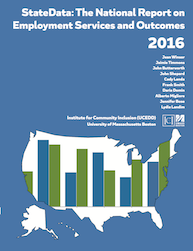State Employment First Policies #3: Investing in Training and Technical Assistance to Build Capacity in Integrated Employment
This brief is the third in a series focusing on Employment First implementation as it relates to one of the seven elements within the High-Performing States in Integrated Employment model. As states undergo implementation of their policies, it is important to understand how state agencies have built employment knowledge and capacity. Download here.
